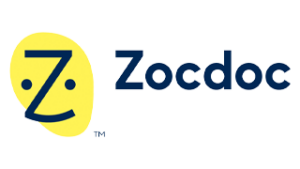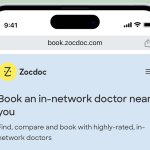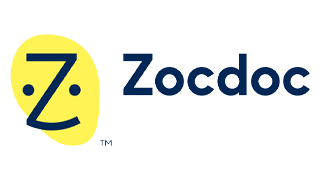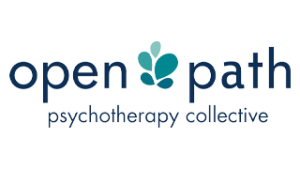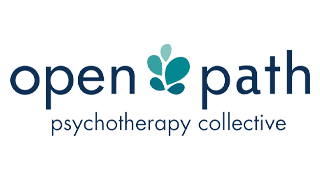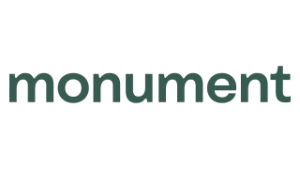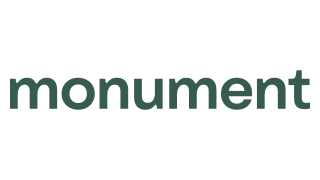Table of Contents
- We spent more than 10,000 hours researching over 70 online therapy and psychiatry platforms, and our testers signed up for the 20 most popular platforms to bring you our top picks.
- Our testers use each platform for four weeks, focusing on the sign-up process, provider selection, provider session quality, and customer service interactions. For this article, we also focused on how each brand can serve users looking for addiction and addiction-related counseling.
- We surveyed over 1,200 online therapy users, held focus group interviews with both users and therapists, and consulted over 60 mental health experts.
- We score each platform on several different indexes, including affordability, diversity of therapists, acceptance of insurance, and provider availability.
- We continually refresh our content to include updates on the platforms we’ve tested, new services offered, and pricing changes.
- Learn more about how we test and review the best online addiction counseling platforms.
Key takeaways
- Zocdoc is our pick for best overall online addiction counseling.
- Open Path Collective is our pick for the most affordable online addiction counseling platform.
- Online addiction counseling is not meant for more severe forms of addiction.
Alcohol and drug addiction can affect anyone. In 2023, 48.5 million Americans ages 12 and older dealt with a substance use disorder in the past year and 28.9 million Americans ages 12 and older dealt with alcohol use disorder (AUD). Some people with mental health disorders may also deal with addiction issues, and may use drugs or alcohol to self-medicate for things like anxiety or depression. Statistics for 2023 show that 20.4 million Americans adults with a mental health disorder also had a substance use disorder.
When a person is caught in a cycle of addictive behavior, they often need help to make a change. There are different types of addiction support available, and the right approach will depend on the type and severity of your addiction. Online addiction counseling is one way to get help. Online therapy for addiction can help you learn strategies to identify the causes of your addiction, cope with your symptoms, and repair relationships.
Online addiction therapy is not right for everyone, and it may not be the best solution for more severe forms of addiction. There are also in-person options, including outpatient, inpatient, and residential rehab programs for alcohol and drug addiction.
We reviewed the top-ranking online addiction counseling platforms, including their costs, services, and features, to help you decide if they are right for you. Here are the three platforms we think provide the best online support options for addiction. Several of these platforms also made our list of top online therapy platforms.
3 best online addiction counseling platforms of 2024
- Zocdoc: Best overall
- Open Path Collective: Most affordable
- Monument: Best for alcohol addiction
Data privacy on mental health platforms
The Health Information Portability and Accountability Act (HIPAA) only protects the interactions and records between you and your provider during the visit. However, online therapy platforms may still collect data on their users to use for marketing or research. We recommend understanding how your data is collected and used before signing up for a platform. To do this and guard your private data in general, we recommend the following basic steps that we learned from the U.S. Department of Health and Human Services (HSS) and Mozilla Foundation’s *Privacy Not Included project:
- Attend your online therapy appointment from a private location, preferably not on a public Wi-Fi network.
- Use your personal computer when possible.
- Look out for checkboxes during sign-up to opt out of data tracking or medical information disclosure.
- Sign up with your email, not by using a social login like Facebook.
- Choose a strong password to create a secure account login.
- Review the platform’s privacy guidelines, typically found on the website’s Privacy Policy page, to understand whether and how the platform collects, stores, and shares private information.
Zocdoc: Best overall online addiction counseling
Why Zocdoc is our pick for best overall online addiction counseling
Zocdoc gives you access to a range of specialists through its marketplace listing. Patients do not pay to use the platform. Zocdoc lets you search for mental health providers who specialize in various areas, including addiction therapy. You can filter your search by things like insurance coverage, appointment availability, treatment approach, gender, age, ethnicity, sexuality, and languages spoken.
The options for addiction counseling you can select include providers who can help with addiction and substance abuse, addiction consultations, addiction follow ups, alcoholism, drug addiction, porn addiction, and sex addiction. The mental health providers available when searching for addiction issues on Zocdoc include licensed clinical social workers (LCSW), licensed clinical addiction specialists (LCAS), certified alcohol and drug counselors (CADC), licensed clinical mental health counselors (LCMHC), licensed marriage and family therapists (LMFT), psychiatrists, and adult psychiatric and mental health nurse practitioners. This wide range of professional backgrounds and approaches can make it easier to find a provider to help with your specific type of addiction and therapy needs.
Who may like Zocdoc: People who want to be able to use specific filters to help find a provider for addiction services. It is also a good option for those who want to use their insurance to pay for therapy.
Who may want to avoid Zocdoc: Someone who is looking for a more traditional online therapy experience with a subscription-based plan and resources like self-help videos and journals.
Zocdoc tester and user insights
The Zocdoc directory is designed to help you locate a mental health professional who not only specializes in treating your mental health concerns but also meets your specific preferences.
“If you want to talk to someone right away, this is a good site to use because you don’t need to wait to be matched. Every therapist has their availability listed and you can skim through providers who have same-day or next-day availability,” one of our testers notes. “This site is also great if you want a lot of control over who your therapist is because you can filter by the type of therapy they specialize in, their gender and sexuality, their religion, languages they speak, etc. There are so many filters!”
When one of our testers searched for addiction and substance abuse providers in Charlotte, North Carolina, there were 113 available providers, and all of them were in-network with the tester’s insurance. On the first page of results, there were seven providers with next-day appointments available.
The platform also lets you see what other patients have to say about a provider with verified ratings and reviews. This can help you feel more confident in choosing an addiction specialist through Zocdoc.
From one of our Zocdoc testers
“The best feature was the ease of searchability. If I wanted to find a therapist without using a site like BetterHelp, I would have normally started with my insurance company’s website and been given a huge list of names to then research one by one. Zocdoc made finding a therapist really easy.”
Almost 90 percent of the Zocdoc users we surveyed in February 2024 were able to use their insurance with the Zocdoc provider they chose. More than half of those surveyed gave high ratings to the diversity of providers on the Zocdoc platform. Our testers agreed.
“I entered my location and insurance, and there was a massive list of therapists to choose from,” one of our testers notes. “I love how much information there was about each therapist. I could see the info they wrote about themselves, their qualifications and education, and all of their availability. I loved the ratings and reviews section. It was so thorough.”
Learn more about our testers’ experiences with Zocdoc in our Zocdoc review.
Open Path Collective: Most affordable online addiction counseling
Why Open Path is our pick for most affordable online addiction therapy
Open Path Collective is a nonprofit that has been providing affordable mental health services for 11 years, helping over 130,000 clients get matched with a therapist to receive help. There are more than 29,000 therapists in its directory, including many who specialize in addiction.
The platform only provides services to people with annual household incomes of $100,000 or less or who might otherwise be unable to afford insurance copays or pay for therapy out of pocket. The platform offers a transparent pricing structure that’s capped at a set amount, making it an affordable online therapy platform for uninsured or underinsured clients.
Our Handbook Team likes that Open Path allows you to search for therapists and access information about them before signing up. On the Open Path website, you can select the “Find a Therapist” link to see a list of therapists throughout the United States. You can filter your choices based on location, cost, type of therapy offered, treatment orientation or style of therapy, race, age, and language spoken. You can also select therapists from a wide range of specialties, including addiction and substance misuse. You can read the bios for each therapist to learn more about them and to evaluate if they would be a good fit. Open Path therapists are licensed and credentialed. Student interns who are training to become therapists also provide services on the platform for a reduced fee.
When one of our testers searched for therapists who offer online therapy and specialize in addiction, they found 2,125 therapists available on the platform nationwide.
From one of our Open Path Collecetive testers
“The website is very easy to navigate. I didn’t have any problems searching with specific filters or reading through the provider profiles. The website is simplistic enough that it isn’t too overwhelming, but it still has all of the information I would need.”
Who may like Open Path: People who don’t have insurance or have a high deductible may appreciate that Open Path makes mental health care more affordable.
Who may want to avoid Open Path: If you want to use your insurance to pay for therapy visits or if you are dealing with a severe addiction that requires more intensive care.
If you’re looking for an online therapy platform that does take health insurance, visit our review of online therapy that accepts insurance.
Open Path tester and user insights
Open Path exceeded our testers’ expectations. Testers like how easy it is to find, review, and select a therapist who can help with issues related to addiction.
One tester notes, “There are numerous filter options to narrow down your search. You can reach out to a therapist via email without signing up for an account (to learn more about them or ask questions). You can read their thorough profiles to decide if they would be a good match for your needs. And it’s affordable for people who can’t normally afford therapy.”
Although individual experiences can vary, our testers have been pleased with the services they received. When you sign up for Open Path Collective, you will receive a member ID email to show to your provider to receive Open Path’s discounted rates.
“I felt really comfortable with my therapist. She seemed genuinely interested in getting to know me and supporting me. In the first session, she didn’t provide a lot of insight, but she definitely made me feel heard and understood, and she made an effort to validate my feelings,” states one Handbook Team tester.
Keep in mind that Open Path is a directory that helps you connect with therapists. It doesn’t actually host therapy sessions on its platform and you will connect with your therapist about which video conferencing or messaging platform you will use.
From one of our Open Path Collective testers
“Overall, I had a great experience using Open Path. In my opinion, it is much easier to find a therapist on this platform than any other I’ve tried.”
For people living with an addiction who feel like they can’t afford therapy, Open Path could be a good option.
Learn more in our Open Path review.
Monument: Best online addiction therapy for alcohol addiction
Why Monument is our pick for the best online addiction therapy for alcoholism
Monument is focused on helping people who deal with alcohol use disorder to either cut back on their drinking or stop altogether. In addition to one-on-one personalized therapy sessions, clients can take part in moderated support groups. This adds an element of community and peer support that sets Monument apart from the other options on our list. If you’d prefer to keep your identity completely private, you can share what you are going through in anonymous chat forums.
Monument physicians can prescribe the medications Naltrexone or Disulfiram to help you manage your alcohol addiction if they determine medication is an appropriate part of your treatment. Each physician appointment is 45 minutes and you can message your provider at any time between appointments through the platform.
Monument also has online courses that address various topics, including meditation, emotional and physical needs, and navigating the sobriety journey. Lesson summaries, suggested readings, and workbooks are also included.
Monument bases its treatment model on a holistic, therapeutic alcohol recovery program. It helps you set a goal for moderation or for quitting alcohol altogether, guides you in examining the “why” behind your goals, and then helps you to achieve your goals so that you can change your relationship with alcohol and take more control of your life.
The Handbook Team was happy with the variety of group and chat sessions available. One of our testers says they appreciate the platform but wish there was more diversity in physician choices.
Who may like Monument: People who want more than individual therapy sessions to help them deal with their alcohol addiction and who want bonus features like group sessions and learning videos.
Who may want to avoid Monument: If you want to pay per session for one-on-one therapy sessions and don’t want to pay for the monthly community membership fee. Those who are not dealing solely with alcohol addiction.
Monument tester and user insights
The Handbook Team likes the fact that Monument individualizes the needs of people who are working to overcome alcohol misuse—including understanding the motivations behind drinking, addressing the physical and mental impact of alcohol addiction and misuse, and finding healthy and sustainable ways to curtail or stop drinking.
Some of the experts we spoke with agree. “Monument is known to be the best-specialized platform for online treatment of alcohol addiction,” notes Jessica Plonchak, executive clinical director at ChoicePoint in Lawn, New Jersey. “It provides access to licensed therapists and physicians, along with online therapy options that include a mix of medication management, group therapy, and individual therapy.”
Our team’s testers did have issues with some chat and group sessions not being well-attended. In one instance, no one else attended a particular group session that they were interested in attending. But, in another group session, the tester found 20 other participants and thought the moderator did an excellent job.
Other pluses of the Monument platform include having access to workbooks and informational courses, including a 30-day dry challenge.
From one of our Monument testers
“There’s a ‘Thought for the Day’ group where people can work on breaking free of negative thinking patterns. I love that this is offered as a way for people to start their day on the right foot!”
The combination of talk therapy, readings, presentations, group discussions, and medication (if needed) can be a powerful, multifaceted approach to alcohol use disorder for some people.
Learn more about our testing experience by reading our full Monument review.
How we test and choose the best online substance abuse platforms
The Handbook Team researched over 70 online therapy and psychiatry platforms, directories, and networks. Based on our research, we signed up for several platforms to test out the service for ourselves. Our goal is to experience these therapy platforms as a patient would and share those insights with you. We hope the information we’ve gathered can help you make an informed decision about the best online addiction counseling platform for you.


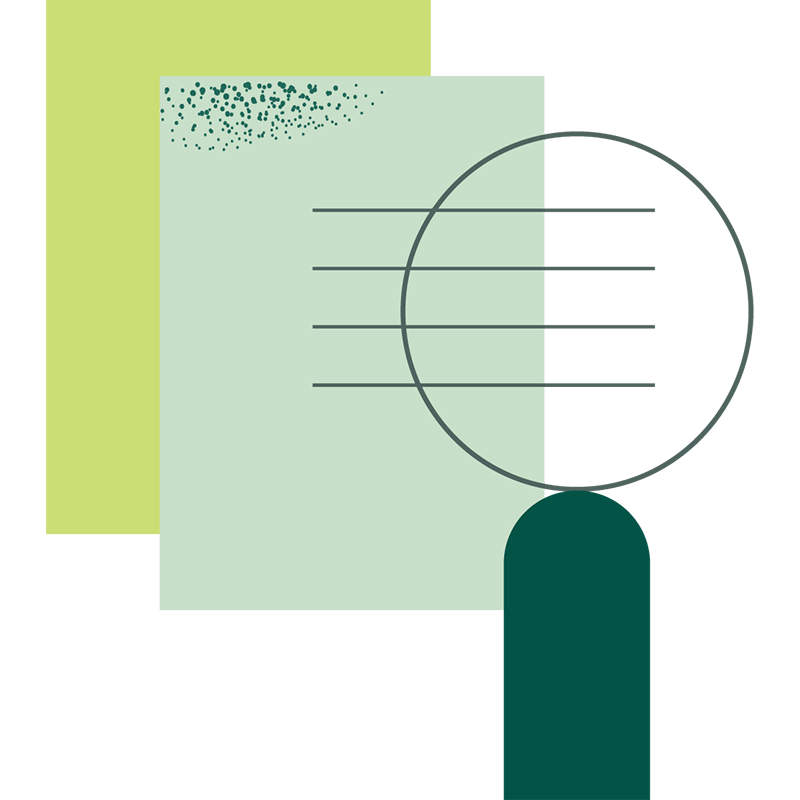

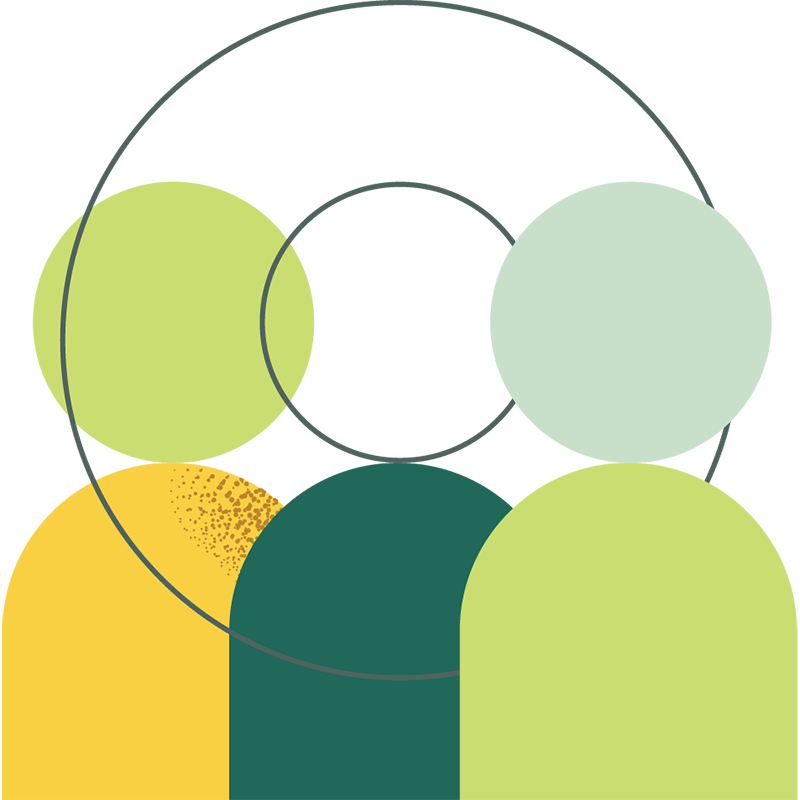

Firsthand testing experience
The Handbook Team explored the platforms and attended online therapy sessions for four weeks. Our testers approached the platforms through the lens of an actual user, paying attention to factors that matter to patients seeking mental health care. They looked at how easy or difficult it was to find a therapist they could talk to, whether psychiatry was offered on the platform, the availability and diversity of the providers, and the overall cost of receiving service. They also looked at the process of changing therapists, if needed.
Additionally, our testers are located throughout the United States, allowing us to gauge the availability of providers in different locations. Testers logged their experience in a diary and came together to share their findings when testing concluded.
Online therapy surveys
We received survey responses from over 2,000 online therapy and psychiatry users in varying age groups. These surveys asked current users of 10 of the most popular online therapy and online psychiatry platforms to evaluate each service. Their feedback taught us firsthand how users leverage each platform’s unique features and helped us learn how users feel about important issues. It also helped us pinpoint the features that matter most when looking for an online mental health provider.
Focus groups
We host focus groups of practicing online therapists and current online therapy and psychiatry users to understand what each group values on their side of the screen. We ask the therapists about the pros and cons of teletherapy and learn what factors influence online therapy and psychiatry users to choose one platform over another. That knowledge is beneficial when we approach the testing phase of the platform review.
Our online therapy and psychiatry rating indexes
We created a unique rating index to see how varying platforms measure up to several key factors:
- Affordability: We looked for platforms with affordable out-of-pocket prices. We also included counseling services that accept insurance or offer financial aid.
- Therapist availability: We collected data on a brand’s total number of in-network therapists and their appointment availability in different states.
- Inclusivity: We evaluated platforms on their inclusivity and diversity of practitioners.
- Transparency: We looked at how much information a platform provided to users upfront before going behind the paywall.
Mental health experts
A group of seasoned mental health professionals offered insight on online therapy platforms for this article, helping us ensure that it contains up-to-date information and expert knowledge.
Learn more about our online therapy testing and review methodology.
Our online addiction counseling testing process
- Complete the initial evaluation.
- Subscribe as a new user, if applicable.
- Match with or select a provider based on preferences.
- Evaluate appointment availability and convenience.
- Evaluate payment and insurance options.
- Use and evaluate the therapy services for four weeks.
- Switch therapists/psychiatrists if applicable.
- Explore platform features such as journals, worksheets, and support groups.
- Contact customer support with questions and any issues.
In a mental health emergency
Online group therapy may not be the most appropriate resource to help in a mental health crisis. If you or someone you know is a danger to themselves or others around them, it is an emergency, and it cannot wait for a group session or an online therapist’s response. Don’t wait. You can find help immediately by:
- Calling 911.
- Visiting your local urgent care or emergency room.
- Calling or texting 988 for the Suicide & Crisis Lifeline.
- Chatting online at 988lifeline.org.
- Calling the Substance Abuse and Mental Health Services Administration (SAMHSA)’s Helpline at 1-800-662-4357 or texting your zip code to 435748.
All the above options will connect you with trained professionals who can provide crisis support. You can find even more resources, including international options, on our helpline directory page.
What to consider when choosing an online addiction counseling platform
Finding the right online addiction therapy platform and provider is critical if you want to make a change. Cost and the ability to use insurance are important factors. However, it is also important to have a therapist you’re comfortable talking to, find available sessions that work with your schedule, and have options to contact your online psychiatrist or therapist between sessions.
The online platform should also connect you with a provider who can tailor a plan of treatment to your specific needs.
“An effective online therapy program should have several components, like a thorough initial assessment, so the unique needs of patients can be detected. Through this, a therapist can tell the severity of addiction and recurring disorders and create a proper treatment plan,” adds Plonchak.
Some other points you may want to consider are:
- Type of therapy: If you want individual therapy, or you’re seeking group sessions for a supportive community environment, look for a platform that offers those services. Some platforms also specialize in using specific therapy methodologies, such as online cognitive behavioral therapy (CBT).
- Type of addiction: Research whether your provider has experience in the specific type of addiction you need help with and if their background is right for the care you are seeking.
- Counseling resources: An online counseling platform that offers additional resources like journals, video courses, and worksheets may help support what you work on in therapy.
- Transparency: Having information upfront can help you make an informed decision. Whether it’s out-of-pocket therapy costs, the policy to switch providers, or being able to review the therapists’ bios before selecting one, transparency can help you select the right platform.
- Therapy contact between sessions: It’s important to know how you can get in touch with your provider between appointments. Look for a platform with an unlimited messaging component that lets you reach out to your therapist anytime.
Our final verdict
Online addiction counseling can be a beneficial tool for helping you overcome certain types of addiction. Our choice for the best online addiction counseling platform is Zocdoc. The Handbook Team likes that the platform allows you to use very specific filters to find the provider you need and that you can search for providers who accept your insurance.
It’s important to remember that online therapy for addiction is not appropriate in all cases. If you or someone you love is living with a more severe addiction, you might consider an in-person alternative, like a residential rehabilitation center.
Learn more about your treatment options by reading our articles on Overcoming Alcohol Addiction and Overcoming Drug Addiction.
Compare the best online addiction counseling platforms of 2024
| Type of therapy | Teen, individual, couples, family, and group therapy, along with psychiatry | Individual, couples, family, and group therapy | Individual therapy, moderated support groups, and medication-assisted treatment with a physician |
| Accepts insurance | Varies by provider | No | Yes |
| Offers medication management | Varies by provider | No | Yes |
Frequently asked questions
The most effective type of therapy for addiction will depend on the individual and the type of addiction being treated. One expert we spoke with noted that cognitive behavioral therapy (CBT) is often effective for addiction. “The most effective therapy for addiction is cognitive behavioral therapy (CBT), which helps patients identify negative thoughts and behaviors and change them. It helps patients develop coping skills for triggers and focuses on preventing relapse,” says Jessica Plonchak, executive clinical director at ChoicePoint.
For some people, mild behavioral addictions and substance use disorders may be successfully treated with online therapy. People with severe addictions may do better with an in-person program that provides a higher level of care and supervision.What types of addiction can be treated with online therapy?
Monument is an online therapy platform that specifically treats alcoholism. Its therapy methods and resources are geared toward helping people overcome alcohol addiction or misuse, and it offers medication management with licensed physicians when appropriate.
- Substance Abuse and Mental Health Services Administration (SAMHSA). (2023). Highlights for the 2023 National Survey on Drug Use and Health. Link
- National Institute on Alcohol Abuse and Alcoholism. (2024). Alcohol Use Disorder (AUD) in the United States: Age Groups and Demographic Characteristics. National Institutes of Health. Link
- Zocdoc user survey, February 2024. Conducted via Pollfish.




